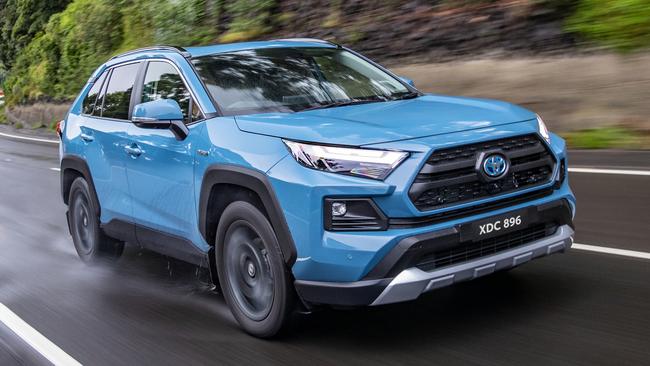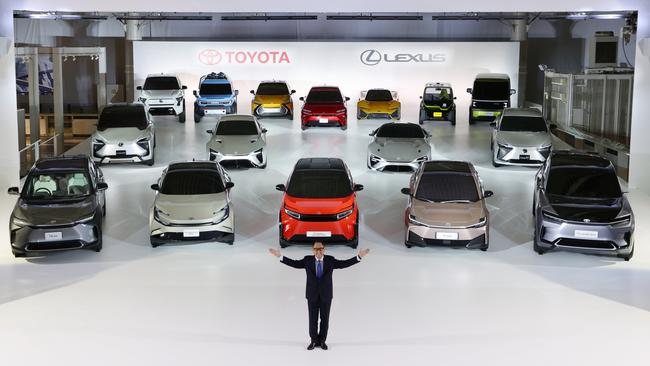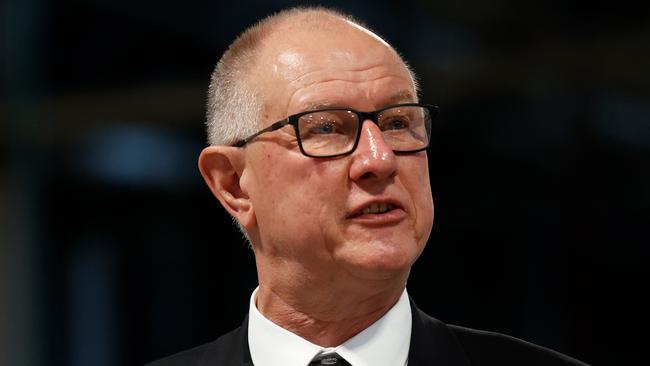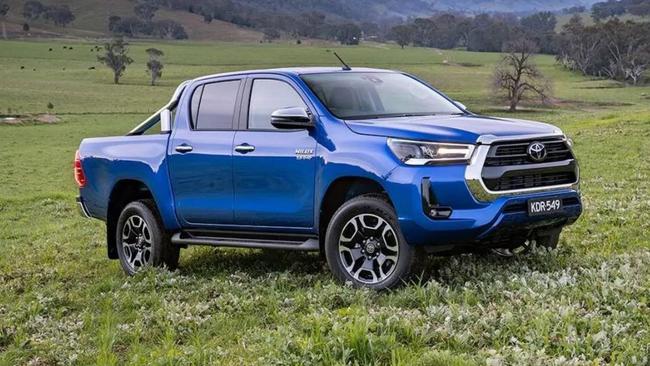Greenpeace attacks Toyota’s environmental credentials and alleged EV delay in scathing report
Greenpeace has attacked Toyota in a scathing report about the environmental performance of the world’s leading car brands.
Motoring News
Don't miss out on the headlines from Motoring News. Followed categories will be added to My News.
Greenpeace has accused Toyota of actively working to slow the uptake of electric vehicles and delay the introduction of vehicle efficiency standards in Australia.
In a report published on Thursday, the organisation calls the brand “one of the world’s most aggressive anti-climate lobbyists”.
The allegations mark a big shift in attitude towards Toyota, which has been long lauded by environmentalists for its pioneering development of fuel-efficient hybrid vehicles.
“Toyota has long enjoyed a position as one of Australia’s most trusted brands but when it comes to tackling climate change, evidence is mounting that Australians’ trust in Toyota is misplaced,” the report says.
In its Auto Environmental Guide 2022, Greenpeace has ranked Toyota last in its analysis of the top 10 automotive brands’ plans for decarbonisation.

General Motors ranks first, ahead of Mercedes-Benz and Volkswagen.
Greenpeace campaigner Violette Snow said Toyota ranked poorly because EVs made up less than .2 per cent of its total sales.
“About 499 out of every 500 vehicles that they sold were still powered by fossil fuels,” she said.
In contrast 8.2 per cent of GM vehicles and 5.21 per cent of Volkswagens were EVs. Ford ranked fourth on the list while Hyundai and its sister company Kia were fifth.
Ms Snow said Toyota had “an established pattern of tactics” it employed to weaken emissions reduction targets around the globe.
“That includes working to reduce public confidence in all-electric zero emissions vehicles, lobbying to weaken legislation regulating climate pollution from transport, greenwashing the impact of its own vehicles in its marketing and championing outdated solutions such as hybrid cars which long-term prolong the usage of fossil fuels,” she said.

Ms Snow said the world had moved on from hybrids.
“You can’t run a hybrid without fossil fuels and if we’re still powering our cars with fossil fuels, we’re not going to reach zero emissions,” she said.
Greenpeace’s report acknowledges Toyota “made a U-turn” on EVs in December last year, but argues it has lost ground on rivals.
Toyota showed off more than a dozen battery-powered concept cars last December as part of an overall $100 billion investment in low-emission motoring it says will deliver 30 new EVs by 2030.
It is targeting global sales of 3.5 million electric vehicles a year by 2030.
But the maker only recently launched its first EV, the bZ4X, a hatchback co-developed with Subaru. That vehicle will arrive here next year.

Toyota has been slow to commit to electric cars, arguing that hybrids are much more affordable and therefore can do more to lower emissions in the short term.
Toyota Australia’s vice president of sales and marketing Sean Hanley said last week that high costs and operational shortcomings meant EVs were not a viable option for many drivers.
He said the brand’s bZ4X was priced at 42 per cent more than a RAV4 hybrid in the United States.
“People can’t pay this much for these cars. This is the point that gets lost in the agendas and the argument,” Mr Hanley said.
He denied Toyota was dragging its heels on emissions reduction.
“We’ve sold over 290,000 hybrid vehicles in the Australian market since October 2001. I think that we’ve played a significant role in those 22 years to reduce our carbon footprint in the Australian domestic market. To suggest that we’re behind is an incorrect statement,” he said.

In a statement released in response to the report Toyota said it was committed to helping customers “on their journey to zero tailpipe emissions based on their individual motoring circumstances”.
The company argues that a tailored approach to decarbonisation is needed because Australians have “vastly different motoring needs, including varying passenger, cargo and towing capacity requirements” as well as differing levels of access to EV infrastructure, particularly in remote areas.
Toyota’s passenger vehicles are by far the most efficient of the mainstream brands in the local market but more than half its sales are thirsty diesel-powered utes and 4WDs.
Snow said strong fuel efficiency standards were need to improve the supply of affordable EVs into the Australian market.




